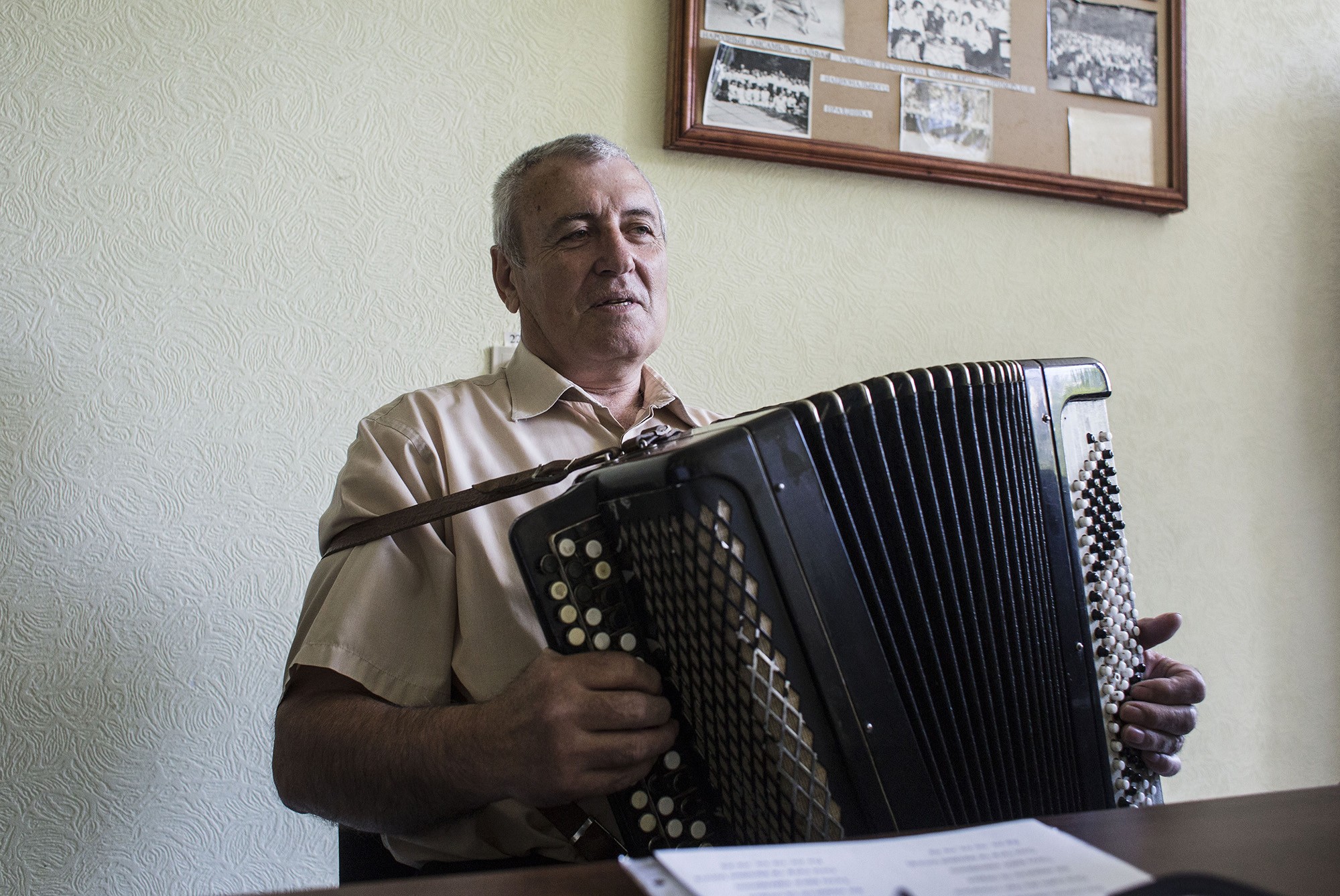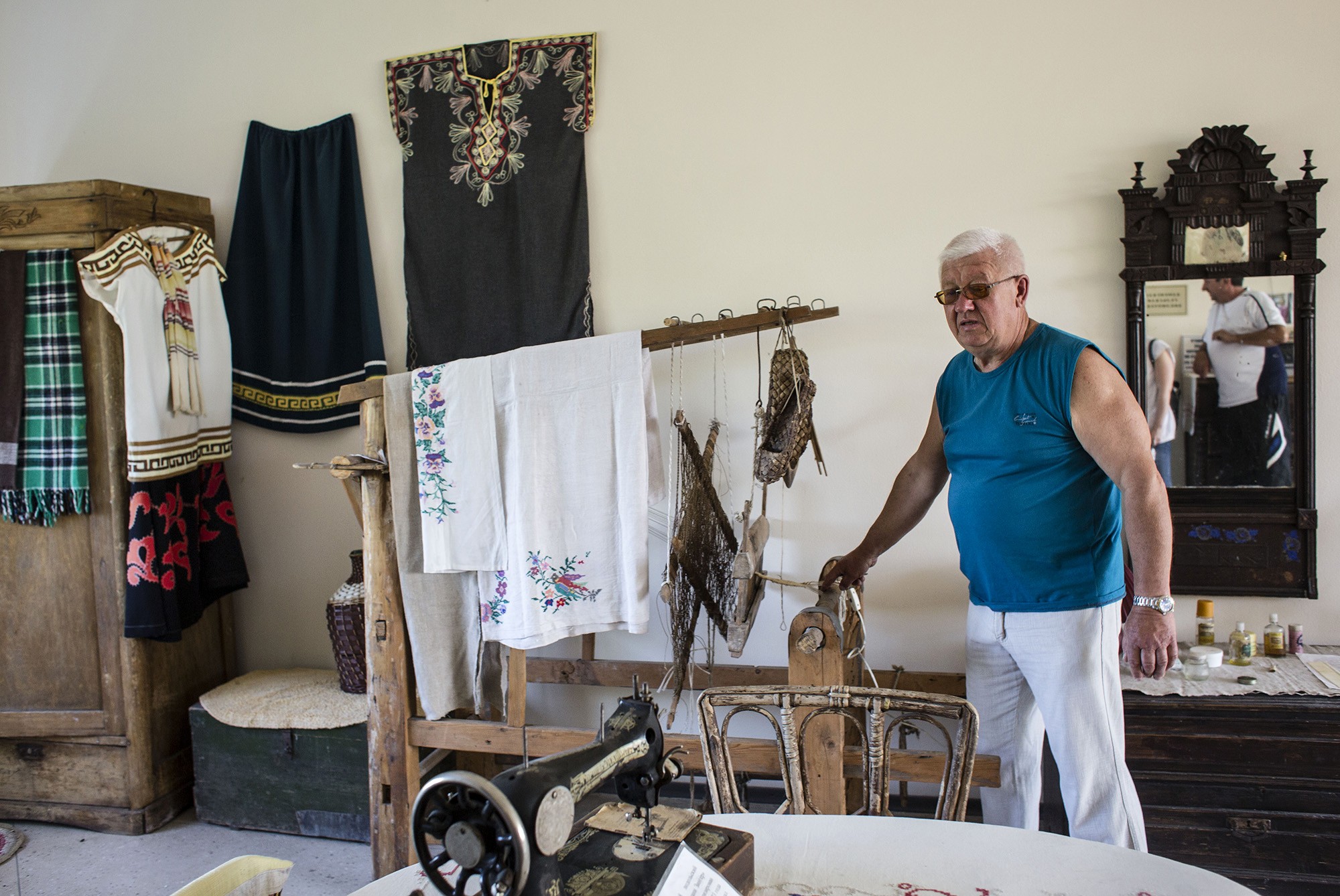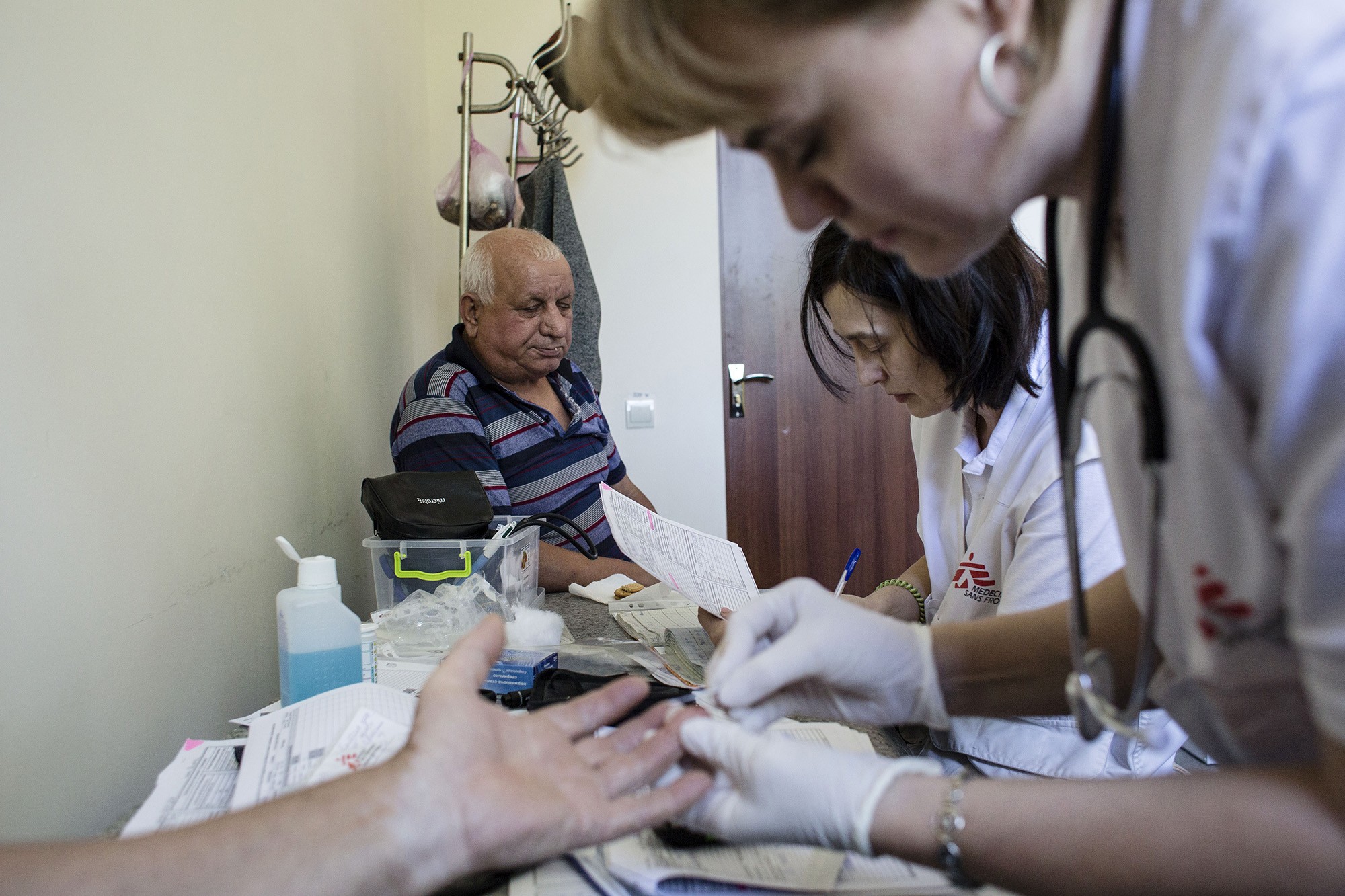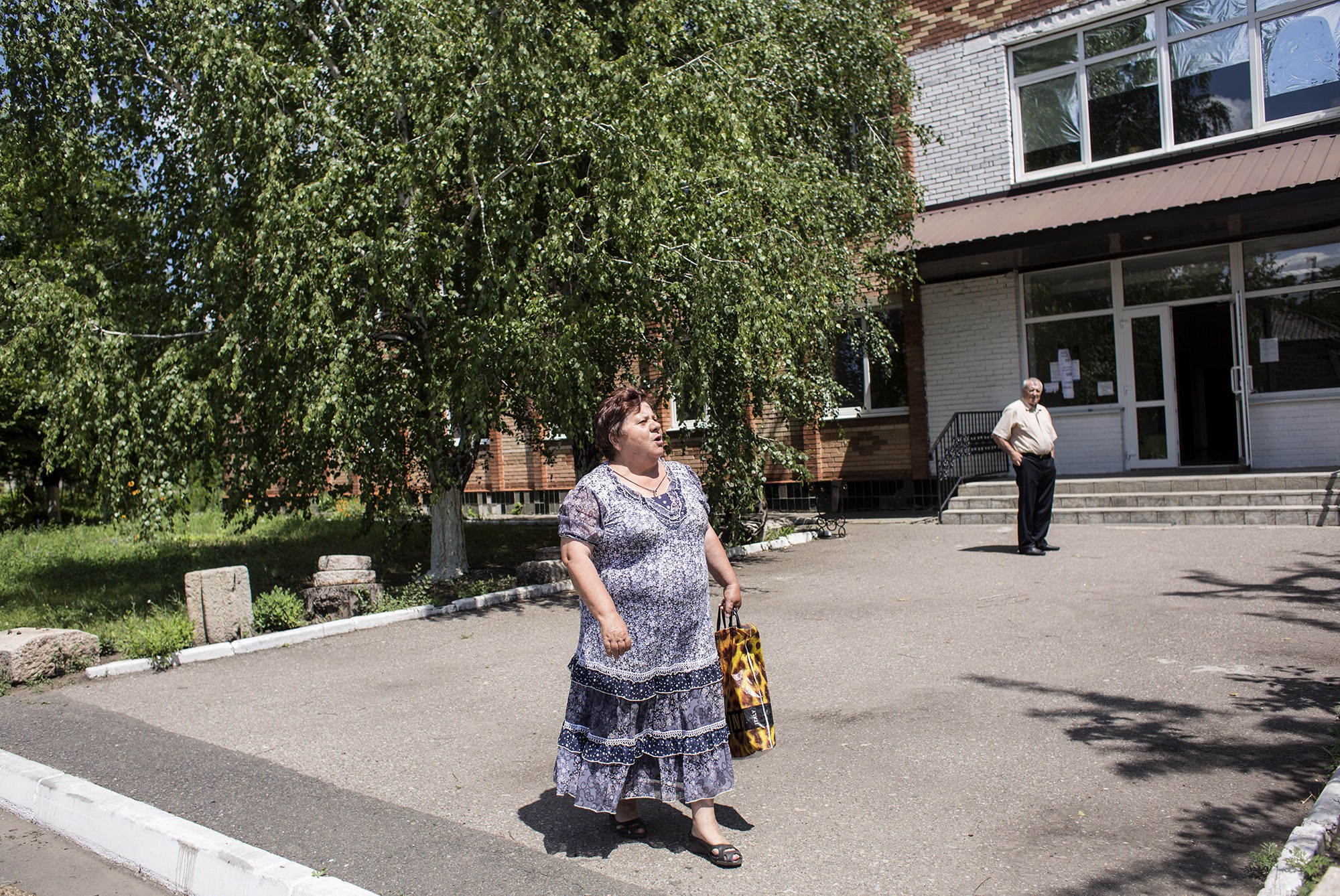KAMIANKA, Ukraine – Nadiya Zosimova worries a lot that her teeth have started cracking and her hearing has been impaired by the shock waves from frequent shelling of the area near her village. She’s afraid it might affect the quality of her singing.
Zosimova, 67, is one of the lead singers in Greek folk band Taipha, which means “family” in Urum – a language spoken by Crimean-Tatarophone Greeks.
Her village of Kamianka is located in Donetsk Oblast, some 700 kilometers from Kyiv. It was created by Pontic Greeks who were deported from Crimea to the Azov Sea area by the Russian imperial authorities in the spring of 1778.
This village of some 600 people has another name – Nova Karan – recalling the name of the village in southwestern Crimea where the ancestors of the local Greeks came from.
While the Russian imperial authorities claimed they resettled some 30,000 Pontic Greeks and Armenians to save the Christian population of Crimea from Muslims, the Greeks still remember that many of them died because of the harsh conditions in the new area.
The Greeks, who had lived on the coast of Crimea since the 6th century B.C., brought to the Azov Sea steppe land the names of their former Crimean settlements, including Urzuf, Yalta or Laspi.
“It was resettlement by the barrel of a gun,” Zosimova said of the Greek deportation.
The Greeks memorialized those sad times in a song. Zosimova sang it, reading the words from her thick notebook.
“Beautiful Crimea, scented, blossoming… But we have to say goodbye,” the song goes in Urum.
Land of war
By the last census conducted in 2001, there are 91,548 ethnic Greeks living in Ukraine, or 0.2 percent of the country’s population. Most of them reside in the Azov Sea area between Mariupol and Donetsk.
But since spring 2014, this land has been the epicenter of Russia’s war against Ukraine and some of the Greek villages have been left totally abandoned because of shelling.

Volodymyr Kamarali, 70, the head of the Taipha band. (Anastasia Vlasova)
Volodymyr Kamarali, 70, the head of the Taipha band, said the village where he was born “was wiped out” by the war. He regrets he can’t visit the graves of his parents there as the village is now under the control of Russian-backed forces.
Kamianka experienced its worst period of shelling in January-February 2015. The local school had its windows smashed. Luckily, the children were not inside the building at that moment.
The villagers had to go for months without electricity, cut off from the rest of the world by heavy snow.
History
Viktor Novytsky, the director of Kamianka’s local folk museum, gave residents antique stove irons from the museum’s collection so that they could iron clothes without electricity. He also handed over a pack of Soviet cigarettes from the 1980s to local men who had not had a cigarette in months.
Novytsky, 62, also teaches history at a local school. He brings children to the museum and shows them how to light a kerosene lamp or carry water using a shoulder yoke.
The museum has dozens of items of old furniture and houseware from the times of the Russian Empire and Soviet times. It also has photos, Greek national costumes, and weapons from the first and second world wars.

Viktor Novytsky, the director of Kamianka’s local folk museum. (Anastasia Vlasova)
Novytsky, however, doesn’t want to add to his collection a large piece of shrapnel, a memento from the current war, which he keeps in a basement.
“I’m not ready to do this yet,” he said, adding that he once nearly collapsed after hearing the sound of a ball in a basketball game, which reminded him of the sound of shelling.
Health toll
Since Kamianka is located only about 12 kilometers from the frontline, its residents still frequently hear the sounds of shelling.
The locals also suffer a shortage of coal, which they used to buy in areas now under the control of Russian-back forces. They have to chop down trees in local woodland to get fuel for heating.
The stress of war has taken its toll on locals’ health as well. Many have developed heart ailments, diabetes, and psychological problems because of the war, said Natalia Koriagina, a nurse working with international medical charity Medecins Sans Frontieres, also known as Doctors Without Borders.

Medecins Sans Frontieres, also known as Doctors Without Borders measure the sugar in blood of local residents of Kamianka. (Anastasia Vlasova)
Connected by a bumpy and heavily damaged road to the nearest big hospital in Volnovakha, Kamianka was chosen by Medecins Sans Frontieres as a stopping point for one of its 24 mobile clinics, which function in the most remote areas, where access to medical services is lacking, according to Mark Walsh, the organization’s head of mission in Ukraine.
Zosimova said a psychologist from Medecins Sans Frontieres helped her a lot in calming her nerves and coping with stress.
Zosimova often sees signs of war in nature. She speaks about the feather grass which started growing through breaks in asphalt caused by shelling or the swathes of poppy flowers growing in the fields, which remind her of the blood of those who perished in the war.
Zosimova, who worked for years as an officer on extra-curricular activities at school to cope with stress, recently started writing poems and drawing. But her main interest is singing songs in Urum, Modern Greek, and Ukrainian – which she knows perfectly as her mother is Ukrainian.
In August, Taipha is heading for the all-Ukrainian ethnic festival to Sorochyntsi in Poltava Oblast, their first big concert tour since the beginning of the war.
Lost culture
The local Greeks regret having lost many of the features of their culture, as their ancestors left Greece to settle on the Black Sea coast in what is now modern Ukraine thousands of years ago.
Still, they celebrate Greek national holidays, learn traditional Greek “kuresh” wrestling, and cook “chirchir” (Greek turnovers filled with minced meat and onions) and “kabete” (Greek layer cake with pumpkin.)

Nadiya Zosimova and Volodymyr Kamarali say goodbye to each other near the Palace of Culture in Kamianka. (Anastasia Vlasova)
Many of the young generation from Kamianka have already left Ukraine for Greece. They include Kamarali’s son and Zosimova’s grandson.
The older generation, however, is more rooted to the Azov Sea steppe than to the land of their ancestors.
“I was born here and I will not go anywhere from here,” Kamarali said.
“This is a simple little village, but we will not give it to anyone,” Zosimova added.
